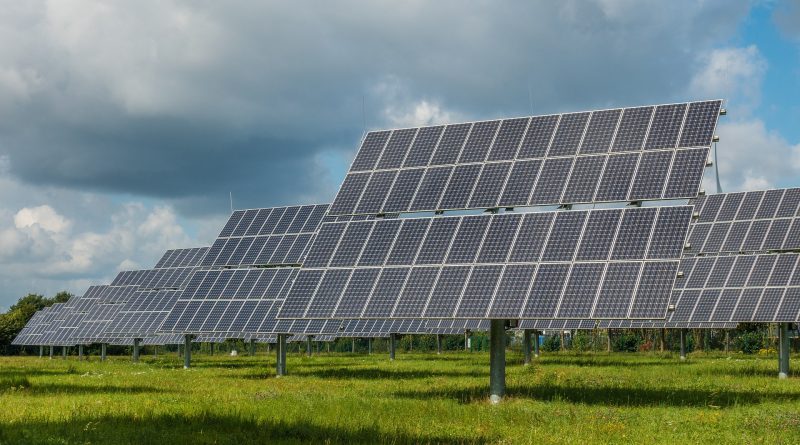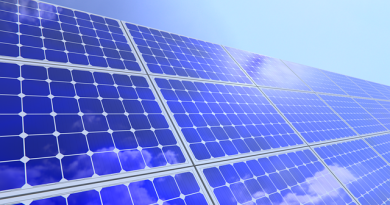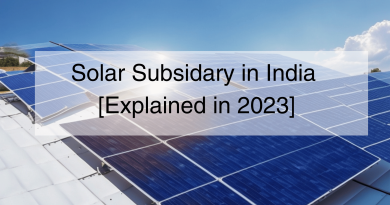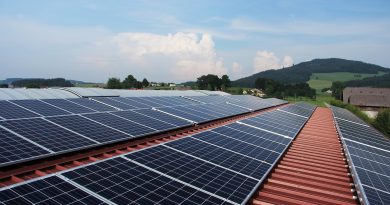Off-Grid vs On-Grid Solar Energy: Unveiling the Distinctions
Solar energy has become an increasingly popular choice for homeowners and businesses seeking to reduce their carbon footprint and lower their energy costs. There are two main types of solar energy systems: off-grid and on-grid. While both harness the power of the sun, they differ in how they are connected to the electricity grid and the level of independence they provide. Understanding the difference between off-grid and on-grid solar energy systems is crucial for anyone considering investing in solar power. In this blog, we will explore the key distinctions between these two systems, their benefits, and limitations.
Off-Grid Solar Energy
Off-grid solar energy systems, also known as standalone or independent systems, are designed to operate without a connection to the electricity grid. These systems often require a combination of solar panels, batteries, an inverter, and a charge controller to generate, store, and convert electricity from the sun. Off-grid systems are commonly used in remote areas or locations where accessing the grid is not feasible or cost-effective.
One of the main advantages of off-grid solar systems is their ability to provide electricity in areas with no access to the grid. This autonomy is particularly advantageous for remote cabins, campsites, or isolated dwellings where traditional power lines are not available. Off-grid systems also offer resilience during power outages, as they can continue to provide electricity even when the grid goes down.
However, off-grid solar energy systems also come with some limitations. The initial installation costs can be quite high, as they require the purchase and installation of all the necessary equipment, including solar panels, batteries, and inverters. Additionally, these systems require careful sizing and maintenance to ensure that they can meet the electricity demands of the household or facility during periods of low sunlight.
On-Grid Solar Energy
On-grid solar energy systems, also known as grid-tied or grid-connected systems, are connected to the electricity grid. These systems use solar panels to generate electricity from the sun, which is then sent to the grid for immediate use or stored for future use. In on-grid systems, a bi-directional meter measures the energy produced and consumed, allowing for accurate billing and compensation for excess electricity fed into the grid.
One of the significant advantages of on-grid solar energy systems is their lower upfront costs compared to off-grid systems. Since these systems are connected to the grid, there is no need to invest in expensive batteries for energy storage. Excess electricity generated during the day can be sent back to the grid, while electricity can be drawn from the grid during periods of low sunlight or high energy demand.
Additionally, on-grid solar energy systems often benefit from net metering policies. This means that homeowners or businesses are credited for the excess electricity they contribute to the grid, reducing their overall energy costs. Net metering provides an incentive for solar energy system owners to produce more electricity than they consume, potentially resulting in reduced or even eliminated electricity bills.
One of the limitations of on-grid solar energy systems is that they do not provide electricity during power outages. Since these systems are connected to the grid, they are designed to shut off automatically during outages to protect utility workers from being electrocuted by the electricity generated by the solar panels. As a result, on-grid systems do not offer the same level of energy independence and resilience during emergencies as off-grid systems.
Comparing Off-Grid and On-Grid Solar Energy Systems
When deciding between off-grid and on-grid solar energy systems, several factors need to be considered. These include energy needs, location, budget, and the desired level of independence or grid reliability. Here are some key points to compare these two systems:
1. Energy Independence: Off-grid systems provide complete energy independence since they are not connected to the grid. On the other hand, on-grid systems rely on the grid for continuous power supply.
2. Reliability: Off-grid systems are more reliable during power outages since they have their own energy storage capabilities. On-grid systems, while dependent on the grid, provide a stable power supply under normal conditions.
3. Initial Costs: Off-grid systems typically have higher upfront costs due to the need for batteries and additional equipment. In contrast, on-grid systems have lower initial costs since they don’t require battery storage.
4. Maintenance: Off-grid systems require frequent maintenance and monitoring to ensure optimal performance and battery health. On-grid systems have fewer maintenance requirements since they don’t rely on batteries for energy storage.
5. Flexibility: Off-grid systems allow for flexible installation in remote locations, while on-grid systems are more suitable for urban or suburban areas with established grid infrastructure.
Conclusion
Explore the advantages and considerations of off-grid and on-grid solar energy systems with SolarClue®. While off-grid systems provide complete energy independence and resilience during power outages, they come with higher upfront costs and maintenance requirements. On the other hand, on-grid systems offer lower initial costs, benefits from net metering policies, and access to the grid’s stability. However, they are reliant on the grid and not suitable for locations without infrastructure.
Assessing energy needs, location, and budget constraints is crucial when deciding between off-grid and on-grid solar energy systems. Consult with SolarClue®, a reputable solar energy provider, to determine the most suitable option for achieving renewable energy goals while considering specific property or facility requirements. Whether pursuing self-sufficiency or maximizing cost savings, solar energy systems from SolarClue® can play a vital role in transitioning to a more sustainable and efficient future.
Frequently Asked Questions
The primary distinction lies in their connection to the electrical grid. Off-grid systems operate independently, while on-grid systems remain connected to the grid.
Off-grid systems store excess energy in batteries for later use, allowing them to provide power during periods of low or no solar production.
Generally, on-grid systems do not require energy storage as they rely on the grid as a virtual storage system, feeding excess electricity back when needed.
Yes, off-grid systems with sufficient battery capacity can supply power continuously, even during cloudy days or nighttime.
On-grid systems are more easily scalable, allowing users to expand their solar capacity by adding more panels and inverters. Off-grid systems require careful consideration of battery capacity.
Yes, off-grid systems tend to be more expensive due to the need for energy storage (batteries) and backup systems. On-grid systems can be more cost-effective.
Off-grid systems are often preferred for remote locations where grid connections are unavailable or impractical.
On-grid systems benefit from grid reliability, while off-grid systems offer independence from grid outages and blackouts.
Excess energy in on-grid systems is fed back into the grid, and users may receive credits or compensation for this surplus electricity.
Both contribute to sustainability, but on-grid systems reduce reliance on traditional energy sources, whereas off-grid systems provide energy independence.




